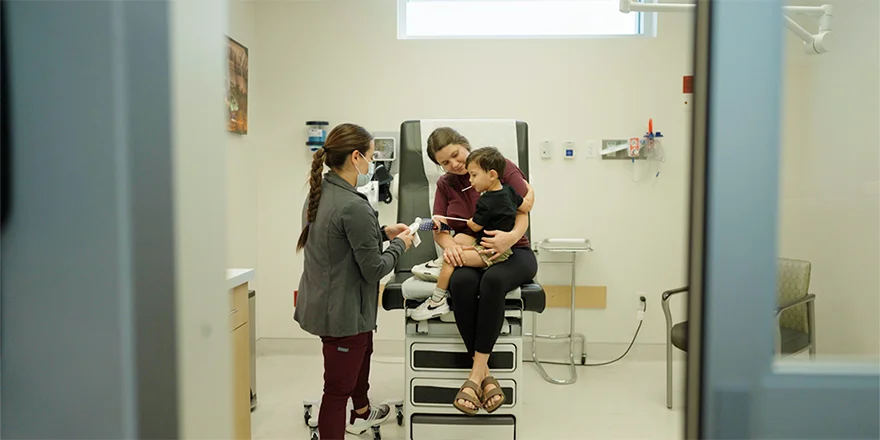In recent years, one of the most significant strides we’ve made in the ever-evolving landscape of mental health is the reduction of the stigma surrounding behavioral health medication management. This transformation has been instrumental in normalizing and recognizing mental health disorders and facilitating conversations between patients and healthcare providers. The evolution of behavioral health medication management has gradually been reshaping the way we approach mental health.
The Evolution of Mental Health Stigma
Mental health has historically been surrounded by a stigma that stems deep within our society – even dating back centuries. This has been even more prevalent in those suffering from behavioral health conditions – that is, symptoms that manifest externally such as: tics, compulsory actions, panic attacks that manifest in physiological symptoms, mood swings, and others. Historically, individuals with behavioral health conditions were often marginalized, institutionalized, or even criminalized. These misconceptions and prejudices have persisted throughout generations, perpetuating the idea that seeking help for any type of mental health concern is a sign of weakness, failure, or shame.
Fortunately, we have made significant strides in recent years in understanding these health conditions, and have challenged the harmful stereotypes that have accompanied them for so long. One of the driving forces behind this shift has been the realization that mental and behavioral health disorders are not a matter of personal choice or even a reflection of the person themselves. Rather, they result from a complex combination of genetics, environmental factors, and neurobiology. This understanding has helped reduce the stigma surrounding mental health and has encouraged and emboldened patients and their loved ones to seek help from their healthcare providers.
Medication Management in Behavioral Health
Medication management is an integral component of behavioral health – particularly for patients with debilitating or severe conditions such as:
- Depression
- Anxiety
- Bipolar Disorder
- Schizophrenia
- OCD
- ADHD/ADD
Behavioral health medication, when used appropriately under the supervision of a healthcare provider and in conjunction with therapy and support, can significantly improve the quality of life for those struggling with behavioral health disorders. The goal is for patients to achieve a greater quality of life through carefully constructed treatment plans and monitoring. By staying in contact with your healthcare provider, support groups, and loved ones, many patients are able to effectively manage their behavioral health medication, effectively lessening symptoms.
Behavioral health medication is not an “easy way out” or a crutch for those that need it in order to enjoy their daily lives. There are many medications for behavioral health conditions that are non-addictive and have few side effects. Medication can make an enormous difference in the quality of life experienced by patients with mental or behavioral health conditions – and by working out a medication management plan with your healthcare provider, you’ll be able to start feeling better sooner.
Personalized Treatment
One of the foremost advantages of medication management in behavioral health is its personalized approach. Mental health professionals carefully evaluate an individual’s symptoms, lifestyle, medical history, and other factors that impact their day-to-day lives. Based on these findings, tailored treatment plans are made to make sure that patients find the right medication and achieve proper dosing. This approach helps to minimize unwanted side effects and enhances the efficacy of treatment.
Reducing Symptoms & Improving Daily Functioning
Behavioral health medications can help alleviate the debilitating symptoms that often accompany mental health disorders. Antidepressants can lift the fog of despair, anti-anxiety medications can thwart crippling panic attacks, and mood stabilizers can help regain stability and confidence in those with conditions like bipolar disorder.
With the right medication regimen, patients can experience significant improvement in their daily functioning. This can lead to better concentration, increased productivity, more restful sleep, fewer mood swings, and a boost in confidence to engage in daily activities. By managing behavioral health medications, patients can find themselves maintaining healthy relationships, pursuing their goals, and having an overall better sense of peace and clarity.
Seeking Treatment
Mental health professionals are acutely aware of past stigmas revolving around mental and behavioral health – but they’re also understanding of them. Now that the gap is being bridged between those suffering from behavioral health disorders, finding healthcare professionals to pursue treatment options has become more readily available. Most healthcare providers are educated in mental and behavioral health and have a working knowledge of how to manage these conditions through medication.
Have Open Conversations
Start by having open and honest conversations with your healthcare provider. Share your symptoms, struggles, and overall goals with your mental health. Behavioral symptoms can be observed by your clinician, but be transparent about their severity throughout your everyday activities. Seeking help for your condition is a sign of strength – not of weakness.
It’s also important to have open conversations with those closest to you. Choose confidants that will encourage your journey toward better mental health, and let them keep you accountable. Surround yourself with people that will help you achieve your goals by reminding you of the importance of medication management and any other therapies recommended by your healthcare provider.
Know Your Options
Changes to health insurance laws have made behavioral and mental health treatment more affordable in recent years. Most insurance plans cover behavioral and mental health services to the same extent as physical health services. Integrating mental and physical health together not only for insurance purposes but for ongoing treatment, is vital to the overall well-being of patients.
Contact your insurance company to see what is covered under your plan. Many companies now apply a copay to therapy sessions and will cover a portion of prescribed behavioral health medications.
Here When and Where You Need Us
At Xpress Wellness, we believe in whole wellness, which includes both sound health in the body and mind. Our behavioral health therapy program can help you start feeling better through a personalized experience. We have licensed clinical social workers who have experience in treating a variety of emotional and behavioral concerns, as well as psychiatric mental health nurse practitioners that are able to create behavioral health medication management plans. These services can be participated in virtually, giving our patients the flexibility and comfort of participating in therapy from wherever is most convenient.
Contact us today to schedule a session with a licensed therapist or a psychiatric mental health nurse practitioner to begin your journey to whole wellness through therapy, medication, or both.



